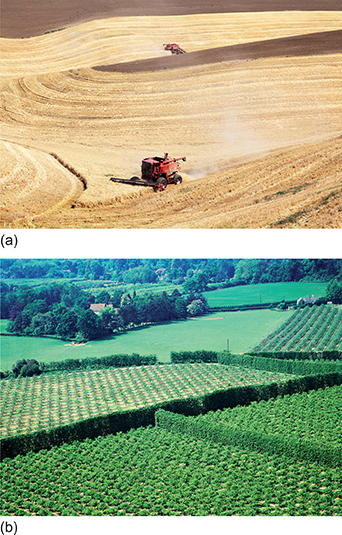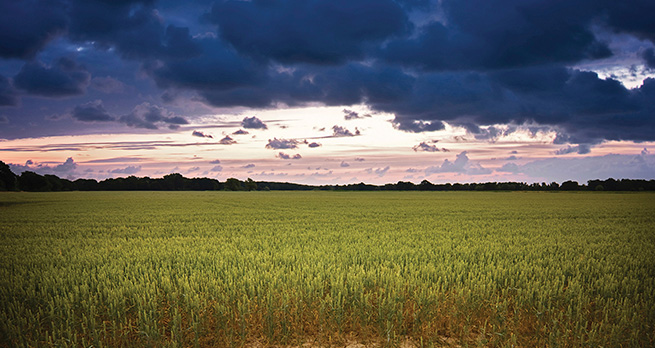2.1 The global demand for agricultural land
The practice of buying up farmland is not confined to East Anglia: it is a global phenomenon. Rather than rely on volatile food markets for the supply of food through trade, many food wholesalers are now taking control of food production by buying the land. Gaining access to agricultural land in other countries is one way of managing environmental insecurity for countries such as China and the states of the Persian Gulf; countries that are vulnerable to the effects of hotter – and in some cases, drier – weather than temperate countries.

There are a number of other related reasons for the increase of land acquisitions:
- Climate change and more extreme weather conditions mean harvests can fail, forcing up commodity prices because of diminished supply.
- The growing global human population, which is predicted to reach 10 billion by 2100, means more people to feed.
- Changing diets in fast-developing, populous countries such as China, where the consumption of traditional grains is falling as wealthier Chinese prefer meat and dairy products. Livestock farming requires large quantities of harvested feed, which in turn requires more land.
- The global financial crisis of 2008 led international companies to look to diversify their assets away from volatile and risky assets, e.g. with shares into more tangible assets such as land.
- Biofuel production needs land. Biofuels can help tackle climate change: they are made from plant mass, absorbing carbon dioxide as they grow and releasing it when the derived fuel is burned for energy. Biofuels, therefore, can be carbon neutral. They can contribute to energy security for countries by reducing dependence on fossil fuels – oil, gas and coal – which may otherwise have to be imported from another country.
The degree of economic uncertainty under which food and agricultural businesses operate in the global economy has thus heightened, along with the environmental risks resulting from climate change. This level of uncertainty requires a new and different approach to food production. Land acquisition appears to be central to this new approach.
